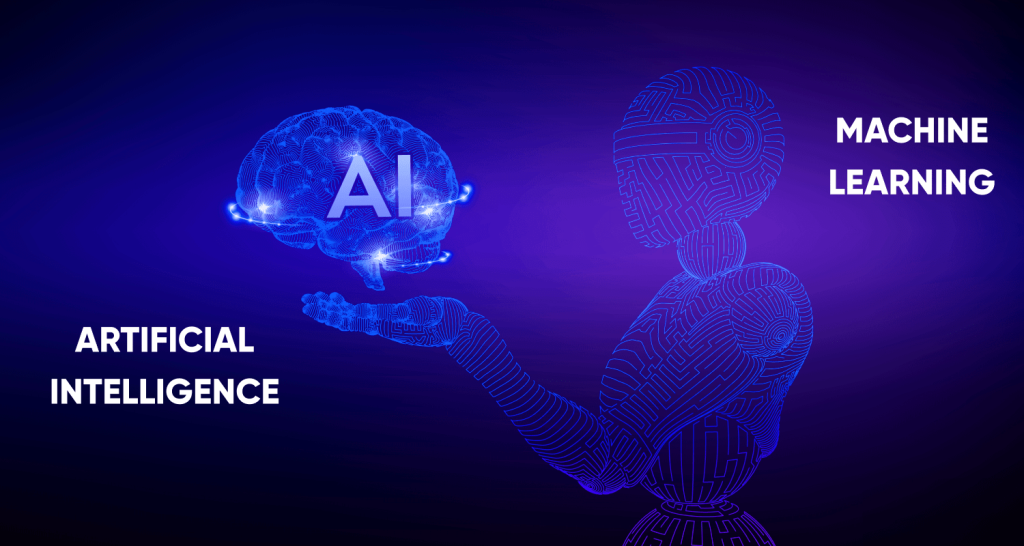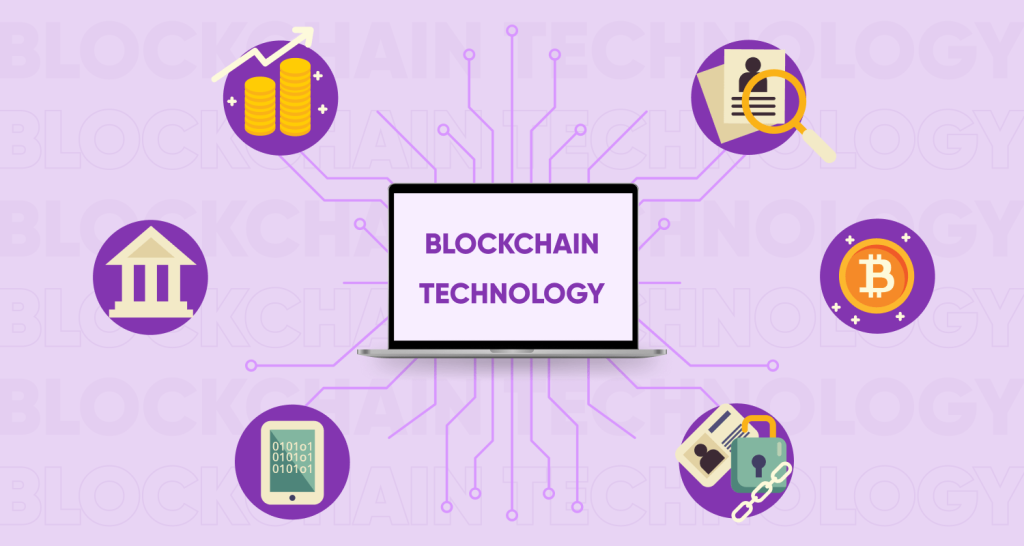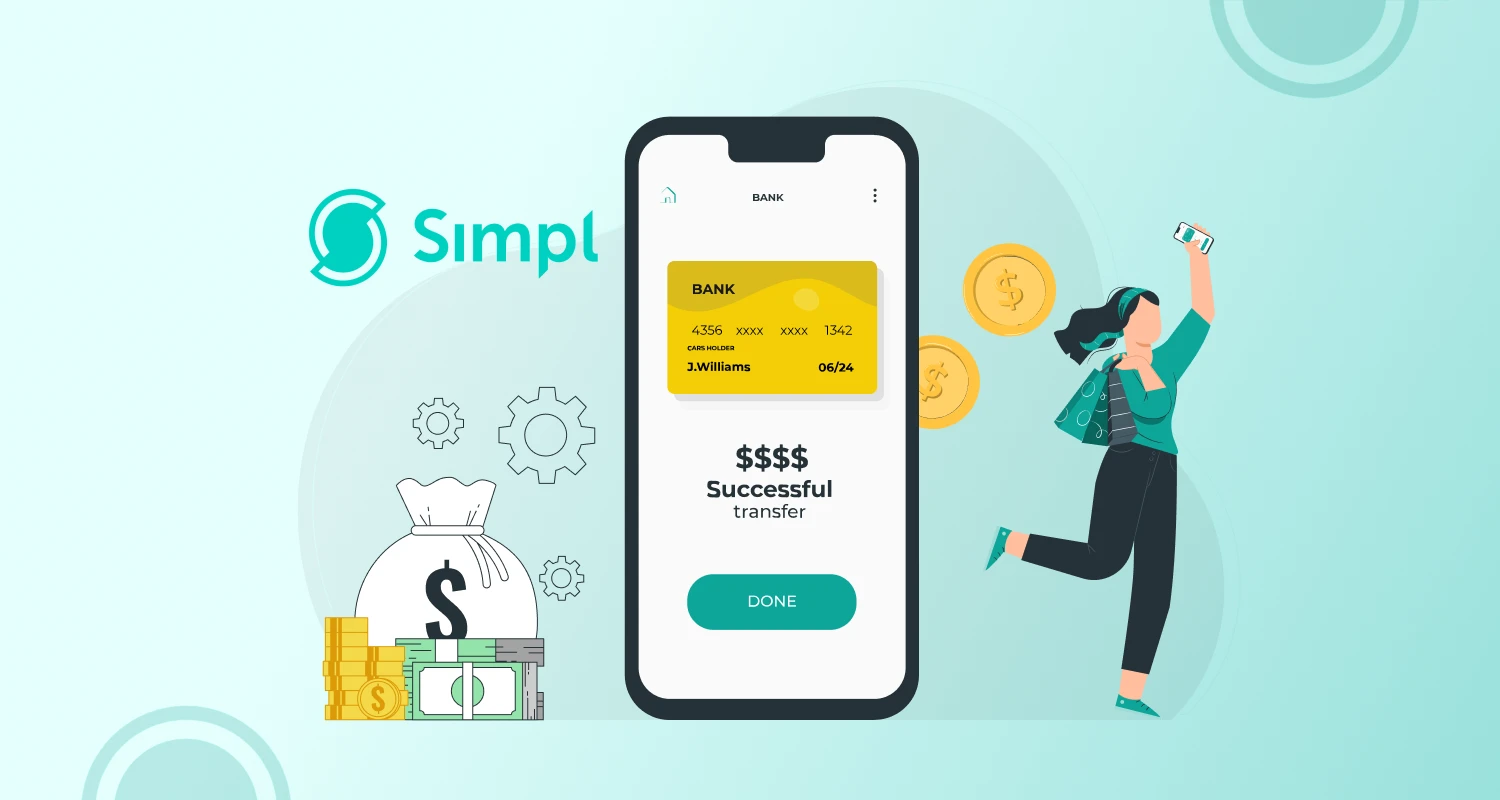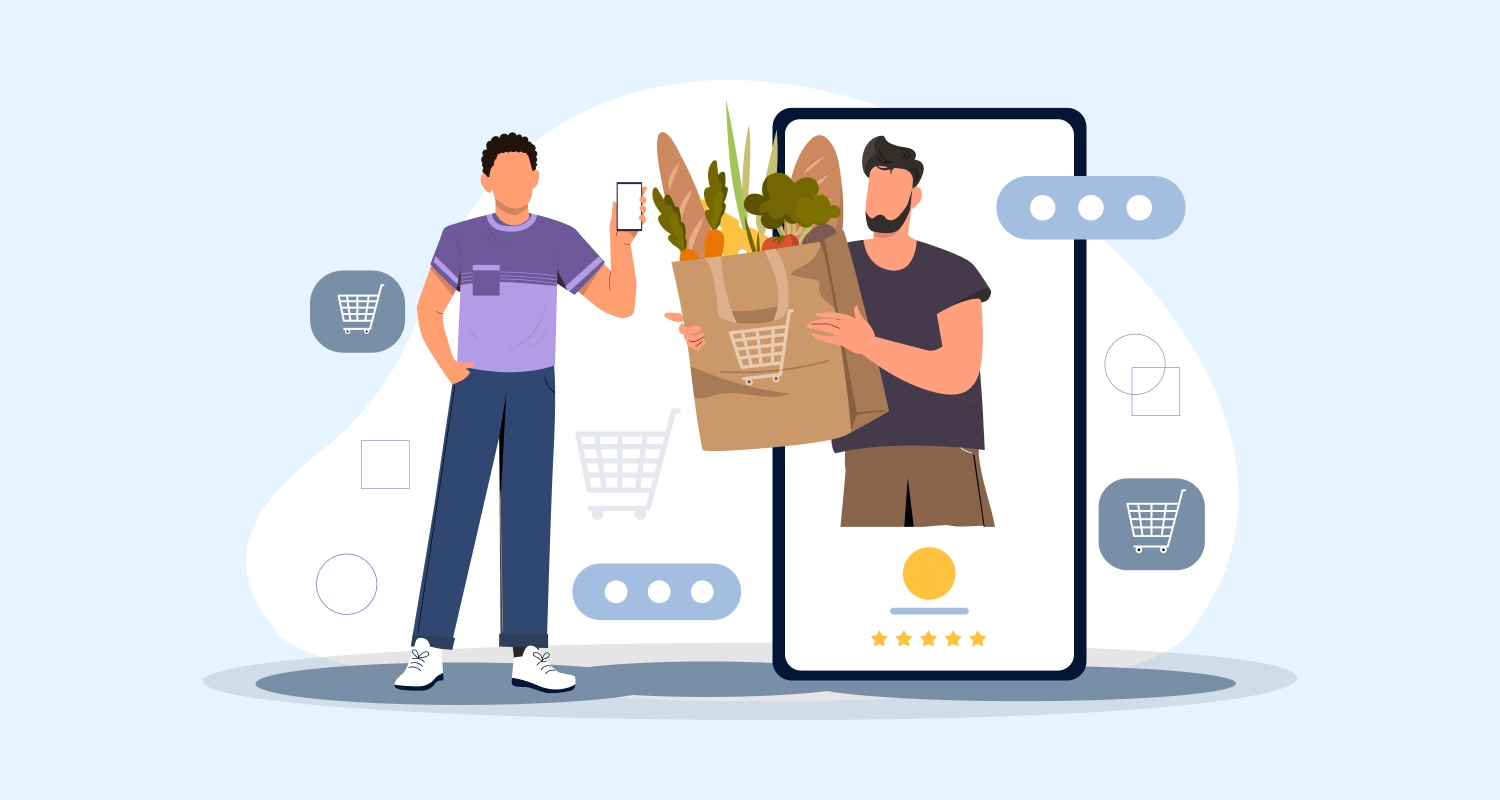The mobile app industry is fast expanding and constantly evolving, and app developers must keep up with the latest trend in android app developments to remain competitive. Android app development trends are always evolving and presenting new opportunities for innovation, from the most recent design and feature trends to the newest technologies and development tools. In this piece, we’ll look at the latest and greatest trends in Android application development and how they may be used to create robust, interesting, and profitable apps.
Android app downloads are projected to reach 259 billion in 2023. This is a breathtakingly high number that demonstrates the expansion of the app economy. App downloads are anticipated to keep expanding quickly as smartphones and tablets gain popularity and more people log on to the internet. The largest mobile platform in the world, Android, is a prime example of this.
Latest statistics about Android App Development Trends according to Harvard Business & Statista 2025
- Android app downloads are projected to reach 259 billion in 2023.
- The number of app downloads is expected to increase by 12.3% annually.
- The global mobile app revenue is projected to reach $935 billion by 2023.
- Android app revenue is estimated to reach $82.8 billion in 2023.
- The total number of Android app developers is projected to reach 8.2 million by 2023.
- The global Android app market size is estimated to reach $45.3 billion by 2023.
- The average revenue per user (ARPU) for Android apps is expected to reach $6.19 in 2023.
- The average cost per install (CPI) for Android apps is projected to reach $2.20 in 2023.
- The Android app development market is expected to grow at a CAGR of 12.1% from 2020 to 2023.
- Android app development is expected to account for 24.2% of the global app development market in 2023.
Exploring the Latest Trends in Android App Development and How to Leverage Them for Your Business
1. Artificial Intelligence & Machine Learning:

Artificial intelligence and machine learning: These two concepts are becoming more and more common in the development of Android apps. The goal of the computer science discipline known as artificial intelligence (AI) is to build machines that can think and behave like people. The goal of machine learning (ML), a branch of artificial intelligence, is to enable computers to learn from data without explicit programming. In the creation of Android apps, AI and ML are applied in many different ways, including natural language processing, image recognition, predictive analytics, and more. By anticipating user behaviour and making quick decisions, AI and ML can improve the usability and efficiency of programmes. Additionally, they help to tailor and enhance user experiences.
The benefits of using AI and ML in Android applications
1. Better User Experience: AI and ML may help generate individualised user experiences that make it simple for users to access and use the app.
2. Task Automation: AI and ML can automate routine operations so the app can accomplish more with less manual labour.
3. Improved Security: By using methods like voice and facial recognition to authenticate users, AI and ML can help to improve the security of an app.
4. Enhanced Efficiency: AI and ML can help an app function faster and more seamlessly by optimising its performance.
5. Intelligent Interactions: Using AI and ML, the user and the app may interact in more intelligent ways, improving the experience and making it seem more intuitive and natural.
6. Greater Accuracy: Using methods like predictive analytics and natural language processing, AI and ML can increase an app’s accuracy.
7. Smarter Analytics: AI and ML can assist with user data analysis, offering insights and suggestions to enhance the functionality of the app.
Popular Android apps that make use of AI and ML
- Google Photos: Google Photos makes use of AI and ML to recognise various items in pictures and make editing suggestions to enhance picture quality.
- Google Lens: Google Lens makes use of AI and machine learning to recognise objects in pictures and deliver more details about them.
- Prisma: Prisma applies distinctive artistic effects to images and videos using AI and ML.
- Cortana: Personalised recommendations, reminders, and other useful notifications are provided by Cortana using AI and ML.
- Google Now: Google Now combines AI and ML to deliver contextual information that is tailored, such news and sports results.
- Waze: Waze offers real-time traffic updates, route suggestions, and other useful navigational tools using AI and ML.
- SwiftKey: SwiftKey learns user typing patterns and suggests words and phrases that are likely to be used. It does this using AI and ML.
- Vivino: Vivino compares and classifies wines, suggests meal combinations, and assigns ratings using AI and ML.
2. Multiplatform Development (Flutter for Android)
p>The Google-developed Flutter framework is used to make mobile apps. Applications can be created for Android, iOS, Windows, Mac, Linux, Google Fuchsia, and the web. With Flutter, programmers can create native apps for several platforms using a single codebase. Flutter allows developers to create stunning, quick, and native-looking apps using the Dart programming language and a wide variety of widgets.
Because of its capabilities to create stunning, high-performance user interfaces and features like hot reloading and quick development cycles, Flutter has grown in popularity for Android development. As a result, many businesses are using Flutter to meet their needs for developing Android apps. And it’s best to hire Android App Developers if you want to make an Android app with unique features and a distinctive design.
Flutter provides developers with full control over the look and feel of their apps. Developers can add new features, alter the app’s user interface, and produce distinctive user experiences with the aid of widgets. Additionally, Flutter offers strong support for animations, making it simpler to design dynamic and interesting user interfaces.
Flutter also offers a large selection of tools and libraries to aid developers in producing apps more quickly. It is simple to add features like analytics, payment processing, authentication, and more because of its extensive collection of frameworks, tools, and plugins.
The Most Downloaded Android App That Uses Flutter
- Google Ads: Google Ads is an effective channel for companies to connect with their target market. It is a fantastic tool for connecting with clients who are interested in your goods and services. Businesses can design customised ads for their target market using Google Ads. Users can easily develop, track, and optimise campaigns with the app.
- Amazon Prime Video: For Android users, Amazon Prime Video is a great streaming option. It gives customers access to a vast library of films, TV series, and other content. Additionally, the app provides individualised suggestions, parental settings, and offline viewing options.
- Spotify: Users may access millions of songs, podcasts, and videos through this well-liked streaming service. The app is fantastic for finding new musicians, making custom playlists, and exchanging music with friends. In addition to ad-free listening and offline playback, Spotify also provides a premium subscription.
- Evernote: Evernote is a potent task management, collaboration, and note-taking program. It makes it simple to continue being productive and organised. Users of Evernote can write notes, schedule reminders, record voice memos, and store documents. Additionally, the software provides real-time device synchronising.
- Dropbox: Dropbox is a file-sharing and cloud storage platform. It facilitates the safe storage, access, and sharing of files. The program also enables users to sync their data across various devices and communicate with others. It is an excellent tool for teams who frequently collaborate.
3. Blockchain Technology

There has been a rise in the number of apps using blockchain technology. Blockchain technology is a type of distributed ledger technology that offers a safe and transparent method for storing and processing digital data. It has the potential to transform app development, making programmes safer and more efficient.
Blockchain-based apps have become much more prevalent in recent years. This is because apps created using blockchain technology are more dependable, safe, and resilient than apps created using more conventional methods. In addition, the usage of blockchain technology in app development has enabled the creation of decentralised, versatile, and innovative applications.If you want to build an app with these capabilities, it’s advisable to find an Android App Development Company that can assist you.
Apps built with blockchain technology are decentralised, making them difficult to manipulate or censor. Developers can also leverage blockchain technology to build trustworthy, open, and safe payment systems. In comparison to traditional app development, this has made it possible for developers to produce apps that are quicker, more effective, and more reliable.
Android Apps that Make Use of Blockchain Technology
- CryptoKitties: Users of this popular blockchain-based game may gather and breed virtual kittens.
- Coinbase Wallet: For Android users, Coinbase wallet is a well-liked mobile wallet that enables consumers to send, receive, and store cryptocurrency assets securely.
- Bitpay: Another well-known Android wallet app, Bitpay enables users to send, receive, and store Bitcoin and other virtual currency securely.
- CoinMarketCap: A well-known application for monitoring cryptocurrency prices is CoinMarketCap.
- MyEtherWallet: MyEtherWallet is a well-known Ethereum wallet that enables users to safely store, manage, and exchange tokens and coins built on the Ethereum platform.
- Blockfolio: Users may monitor the prices of their cryptocurrency investments with this well-liked portfolio tracking tool.
4. Android Instant Apps
p>Google’s Android instant apps eliminate the need to search for and install a third-party Android emulator or runtime environment to access native Android apps. They may be used on any device running the Android operating system and are made to offer users a seamless experience. Instant apps are based on a modular framework that enables developers to break down larger applications into smaller components and instantly load them onto a user’s device. Developers can reduce development time and expenses and provide users with a quicker, more effective user experience.
Here are some trendy Android Instant Applications
- Amazon Shopping: One of the most well-known Android Instant Apps is Amazon Shopping. It enables users to browse and purchase things from within the app. The app’s user-friendly UI makes it straightforward for users to find what they’re looking for. Customers can purchase with confidence using Amazon Shopping since they know they are getting the best deals and options.
- Spotify: Spotify is one of the most well-liked music streaming services. Users have access to millions of songs and albums from international performers. Additionally, the app provides a personalised experience with tailored playlists and suggestions. Users can use the same functionality of Spotify’s Android Instant App without downloading the app.
- Netflix: The most popular subscription service in the world for watching TV series and movies is Netflix. Users can access the same library of books using the Android Instant App without having to download the app. Additionally, it provides a customised experience with tailored recommendations and the option to pick up where you left off with your viewing.
- YouTube: The most well-known video-sharing website in the world is YouTube. Users can get the same functionality through the Android Instant App without downloading the app. Additionally, it provides a tailored experience with unique recommendations.
- CNN: Without having to download the app, users can access the same news articles, videos, and other information through CNN’s Android Instant App. Additionally, it provides a tailored experience with unique recommendations.
Read More: Future of Mobile App Development
5. Motion Layout
p>A recent development on the Google Play Store is the emergence of Motion Layout Android Apps, which employ the Motion Layout API to develop dynamic, interactive user interfaces. With the aid of this cutting-edge technology, programmers can now create apps with seamless, responsive animations and transitions as well as intricate interplays between parts.
The Motion Layout API is intended to make it simpler for developers to design dynamic, interactive user interfaces. Developers may easily design complicated animations and transitions since it defines the layout and animation using a series of XML attributes. The development of apps with highly interactive user interfaces that are simple to understand and visually appealing is made simpler as a result.
In order to build more engaging user experiences, Motion Layout Android Apps have previously been implemented in apps like Google Maps, Instagram, and Twitter. As more developers start utilising the Motion Layout API, it is anticipated that this trend will continue to grow. As a result, there will be a greater number of apps with engaging user interfaces, seamless animations, and transitions, making apps more fun to use.
Popular Android Apps with a Motion-Based Layout
- Muzei Live Wallpaper: An Android software called Muzei Live Wallpaper uses motion layout to provide a distinctive and interactive wallpaper experience. Each piece of art is exhibited with a separate animation as it cycles through a variety of works from numerous sources. Users of Muzei can personalize the background with their own photographs or artwork and the app offers a straightforward user interface.
- Google Fit: Google Fit is an Android app that tracks users’ fitness objectives by utilising motion layout. It displays statistics like heart rate, steps taken, and calories burned and may be used to track activities like riding, walking, and running. Additionally, the app provides users with tailored coaching and reminders to keep them on track.
- YouTube: A motion layout-based Android app, YouTube offers a fun and interactive way to watch videos. Users may swipe through movies, see videos in full screen mode, and regulate the playback speed thanks to this feature. Additionally, the app has a floating player that enables multitasking while still allowing users to view their favourite films and gesture-based navigation.
- Google Images: An Android app that uses motion layout to assist users in organising and viewing their photos is Google Photos. The app enables users to look up photographs instantly.
6. IoT – Internet of Things
The creation of IOT apps for Android has grown in popularity recently. The necessity for businesses to use the Internet of Things (IoT) and the potential of linked devices to run more streamlined and effective operations is what is driving this trend. Businesses are using IOT to automate processes, improve customer engagement, monitor and control operations remotely, and give more data-driven insights.
For a number of reasons, the creation of IOT apps for Android is becoming increasingly popular. The first reason that Android is a wonderful platform for creating IOT applications is because it is one of the most widely used mobile operating systems. The Android platform, which is crucial for IOT apps, includes strong security features and scalability. Finally, the open source and extremely adaptable Android development platform offers the ideal environment for developers to produce cutting-edge applications. Consider on-demand app development to get a customised application that meets your needs.
Businesses must make sure they have the necessary technology and resources in place to create and deploy IOT apps if they want to stay ahead of this trend. This entails appointing seasoned Android developers, making the appropriate infrastructure investments, and creating a reliable and secure platform. Businesses may use the power of IOT to develop creative solutions that will offer priceless insights and enhanced operations with the correct team and resources in place.
Popular IoT-based Android apps
1. Hive Home: Hive Home is an Android app that enables remote control of your networked home. The Hive Home app lets you control your lights, thermostat, and other smart home appliances. In order to keep you updated on events in your house, it also enables you to set up notifications and build personal timetables.
2. Philips Hue: You can operate your Philips Hue lighting system with the help of the Philips Hue Android app. You can manage your lighting with this app, design your own scenarios and schedules, and even set up voice control using Apple HomeKit, Google Assistant, and Amazon Alexa.
3. WeMo: This Android app allows you to remotely control WeMo-enabled devices. The app allows you to control your lights, thermostat, and other devices. Additionally, it integrates with IFTTT so you can build unique automations with other tools and services.
4. Nest: The Nest Android app enables remote management of your Nest products. The app allows you to operate your thermostat, smoke and CO2 detectors, and other devices. You may also set up personalised alerts and timetables to keep track of what’s occurring in your home.
7. Adaptive Icons
As Google continues to strive for a consistent appearance throughout the platform, adaptable icons for Android are growing in popularity. The drive to improve user experience across platforms and devices is what is driving this trend. As a result, designers are producing more artistic and visually appealing icons for their applications. Adaptive icons, which enable developers to build icons that seem different based on the platform they are being viewed on, are being used to do this. Using adaptive icons also enables designers to build icons that are better suited to the general aesthetic of their app.
Popular Android app with Adaptable Icons
- Google Play Music: Users may easily browse and listen to millions of songs using the Google Play Music app. It has adaptable icons that allow users to instantly recognise the app and its content in the application launcher on their device.
- WhatsApp: WhatsApp is a voice over IP and cross-platform instant messaging service. Users can share photographs, videos, and voice messages as well as initiate and receive calls through audio and video. It has adaptable icons that enable users to instantly recognise the app and its contents in the app drawer on their device.
- Microsoft Outlook: Microsoft developed Microsoft Outlook, an email and calendaring service. From a single interface, users can manage their emails, calendars, contacts, tasks, and notes. It has responsive icons that make it easy to recognise the app and its contents from the home screen.
- Skype: Microsoft created Skype, a voice-over-IP service and instant messaging application. It enables users to share files, send instant messages, and make audio and video conversations. Users can instantly recognise the app and its contents in the app drawer of their device thanks to its adaptable icons.
- Adobe Reader: Adobe developed Adobe Reader, a PDF reader. Users can view, annotate, and comment on PDF documents with this tool. It has responsive icons that make it easy to recognise the app and its contents from the home screen.
8. App Bundles
As a result of the thriving mobile app business, app development trends are continually evolving. The adoption of app bundles is one of the major trends in the app development sector. App bundles are groups of apps that are bundled and marketed as a single unit. The ability of app developers to provide clients with more apps at a reduced cost has contributed to the growth of this bundle trend. As a result, app developers may see an increase in income and user engagement. App bundles can also assist app developers in differentiating their goods from competing ones on the market, increasing their appeal to potential customers. Finally, app bundles can also give users more value because they let them buy several apps at once, improving the quality of their experience. App bundles will become a more and more common way to package and sell apps as the app development market expands.
Popular Android applications that are currently using App Bundle include:
- Adobe Photoshop Express: Using App Bundle, Adobe Photoshop Express offers a modularized package of their image editing and sharing app. Users can download the software more easily as a result of the reduction in download size.
- Spotify: To speed up app downloads, Spotify, a music streaming and discovery platform, uses App Bundle. Users may download the app more quickly as a result, and download sizes are kept short.
- Uber: To help customers download their software more quickly and with less storage space, Uber, a ride-hailing service, employs App Bundle.
- WhatsApp: WhatsApp is a messaging and voice over IP programme that uses Software Bundle to minimise the size of the download bundle and make it simpler for users to get the app.
- Instagram: Instagram is a photo- and video-sharing app that makes use of App Bundle to make the download process simple for consumers and minimise download sizes.
The app bundle includes the following components:
1. Android Studio
2. Java SDK
3. Android SDK
4. XML
5. Firebase
6. Google APIs
7. Gradle
8. Android Support Library
9. Android Wear SDK
10. Android NDK
11. Android Design Support Library
12. Android Data Binding
13. Google Play Services
14. Android Studio Plugins
15. Testing Framework for Android Applications
16. Android Build Tools
17. Android Emulator
18. Android Studio Layout Editor
19. Android Studio Profiler
20. Android Studio Virtual Device Manager
9. Voice User Interface
VUI development for Android is gaining popularity. Voice control has grown in popularity as a way for users to engage with Android applications by speaking commands to a smartphone. Mobile developers are incorporating voice commands into their apps as a result of the adoption of voice assistants like Alexa and Google Assistant in order to improve the user experience.
VUI can be utilised for a number of activities, including menu navigation, content search, and voice command initiation. Developers may give their users experiences that are more logical and user-friendly by utilising voice recognition technologies. VUI can also be used to let users access information and services that are not offered through conventional user interfaces. VUI is becoming more and more common in Android development, and this trend is anticipated to continue.
Popular Android applications with Voice User Interface
Google Assistant: Google Assistant is a virtual assistant that uses artificial intelligence and is mostly accessible on mobile and smart home devices. It is a voice-activated assistant that can assist users with a range of tasks, including playing music, setting alarms and reminders, and more.
- Alexa: Alexa is a cloud-based voice service provided by Amazon and is available on a variety of Amazon products as well as third-party products that have Alexa built-in. Alexa may be used to make calls, play music, control smart home appliances, access information, and more.
- Hound: Hound is an Android app that combines voice search and assistant functionality. Users can ask queries and the app’s natural language processing engine will respond with answers. Additionally, it may assist users with actions like playing music, setting alarms, and more.
- Dragon Mobile Assistant: A voice-activated assistant app for Android devices, Dragon Mobile Assistant assists users with a variety of tasks like setting alarms, playing music, checking the weather, and more. Users can also use it to place calls and send texts.
- Google Now: Google Now is an Android voice search and assistant app. It may assist users with a variety of functions, including alarm clock setup, music playback, weather checking, and more. Additionally, it enables users to ask questions and receive responses from the app’s natural language processing engine.
10. Cloud Integration
Cloud integration in Android applications is a constantly expanding trend. To simplify data storage and accessibility for developers, several platforms now provide cloud integration. Additionally, it allows users to view their data from any internet-connected device. Developers can design applications with multiple users and work together on the same project more easily thanks to cloud integration. Additionally, it enables a safer method of data backup and archiving. If you are considering Android App Integration, it is advised to Hire Dedicated Developers.
When it comes to sharing data with other people and devices, cloud integration also gives consumers more alternatives. This trend enables apps to scale more easily and perform better. Since they don’t have to build and maintain a physical infrastructure, developers can create apps that are more cost-effective thanks to cloud integration.
Popular Android Application which uses Cloud Integration
- Slack: Slack is a platform for business communication that connects to numerous cloud applications. Users may easily connect with coworkers, exchange files, and work on projects together.
- Evernote: Evernote is a note-taking application that connects to numerous cloud services. Users can keep track of thoughts and ideas in a centralised location. Users can access their info from any device thanks to it as well.
- Microsoft OneDrive: For Android users, Microsoft OneDrive offers cloud storage. Users can store and view their files using any internet-connected device. Users can also work together on documents with other people.

In Conclusion
The field of Android app development has advanced significantly. Android app development has experienced remarkable expansion in terms of capabilities and resources, transitioning from a niche market to a mainstream one. Future Android app development will be shaped by current trends and tools as the industry develops. The demand for high-quality apps is rising, and there are now more sophisticated tools available than ever before, making it easier than ever to create Android apps.
Android app developers may design robust, secure, and user-friendly apps that will assist in enhancing user engagement, raising income, and driving innovation by utilizing the most recent trends and tools. The world of mobile app development is always evolving, so it’s crucial to keep up with the most recent developments to stay competitive.
Frequently Asked Questions
What are the top Android Development Trends in 2025?
Augmented Reality and Virtual Reality Development
Machine Learning and Artificial Intelligence Integration
Wearable and Connected Device Development
Cloud Computing and Cloud Storage Integration
Internet of Things (IoT) Development
Blockchain Development
Motion and Gesture Detection Development
Cross-Platform Mobile App Development
Instant App Development
Flutter Development
What Does the Future Hold for the Development of Android Applications?
Due to Android’s continued popularity as one of the most widely used mobile operating systems worldwide, the creation of Android apps is predicted to increase. Developers will have access to more potent tools and features as mobile technology develops, enabling them to produce creative and interesting apps. Additionally, the incorporation of AI and machine learning into Android apps will present new potential for developers to produce apps that offer customers more immersive and personalized experiences.
Which Is the Best Pharmacy App?
Yes, there is a big market for developing Android apps. Businesses are relying more and more on Android apps to reach their audiences and fulfil their demands as mobile usage grows. In the upcoming years, there will likely be a continued rise in demand for Android app developers.







